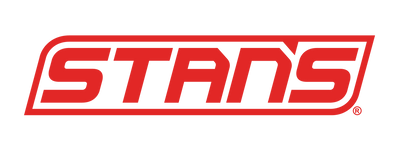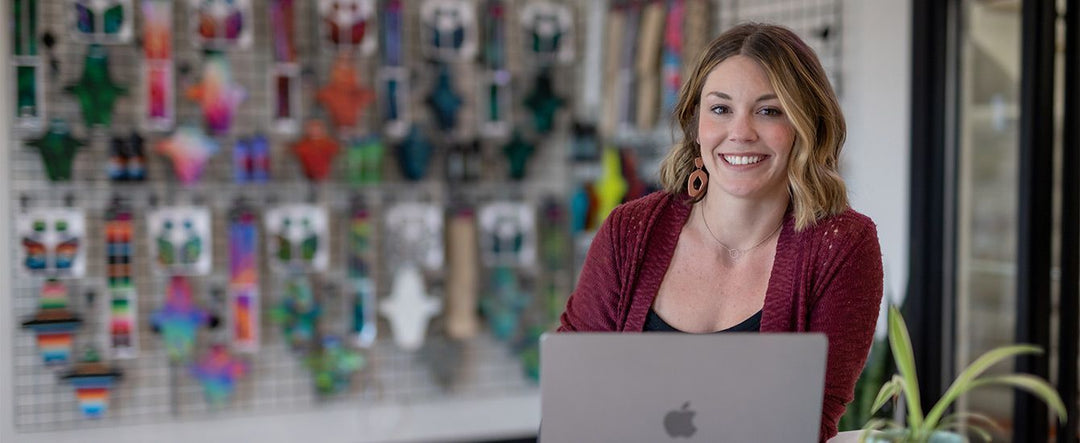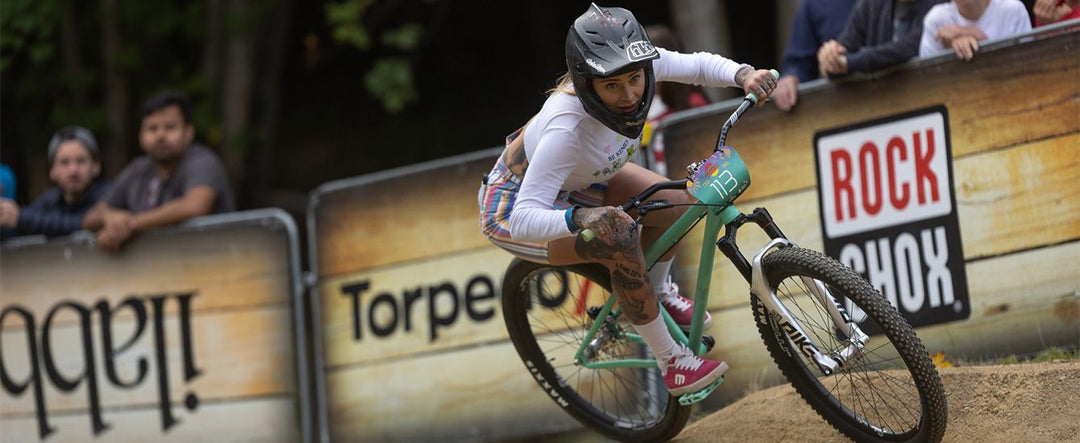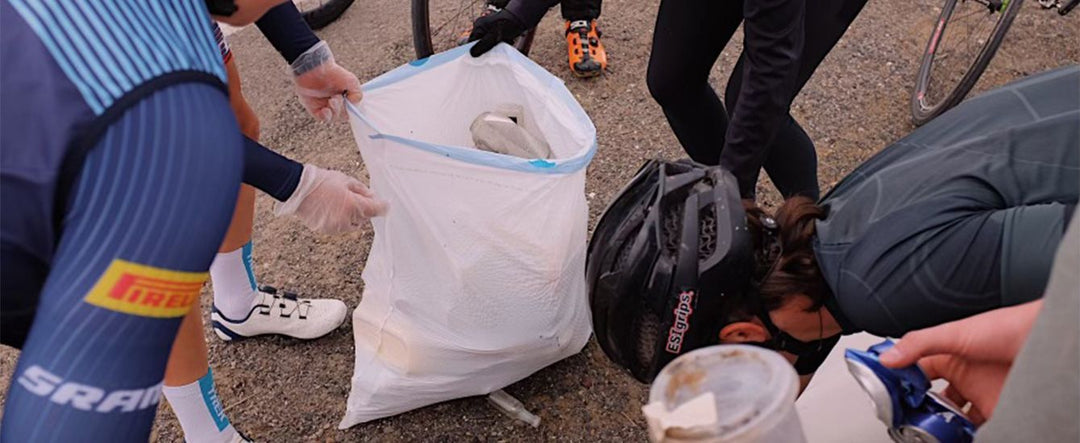From Pro Racer to Entrepreneur: Get To Know MTB Legend Leigh Donovan

During her nine-year pro career back in the heyday of mountain biking, Leigh Donovan was one of the best racers in the world. In addition to winning the 1995 UCI Downhill Mountain Bike World Championship, she rode her way onto 39 UCI World Cup podiums, won an overall World Cup title and earned nine U.S. National Championship titles. Following her retirement, Donovan went on to become a successful entrepreneur, wife and mom. We caught up with the Orange County, California-based former dual slalom and downhill racer to find out what she’s been up to since her pro racing days.

When Leigh Donovan - now the owner of IChooseBikes - talks about riding, you can’t help but hear the enthusiasm and excitement in her voice. Nearly two decades after her retirement from elite racing in 2001, she still gets out to pedal anywhere between two and four times per week, depending on the time of year and her schedule.
IChooseBikes was born in 2013 not long after an otherwise seemingly routine errand to get a haircut. “I overheard a random conversation at a hairdresser’s salon in which some woman I didn’t know was talking crap about mountain biking and how dangerous it is,” said Donovan. “That planted a seed in me to start focusing on education.”
A few weeks later Donovan was teaching mountain bike lessons at a women’s retreat for female executives in the cycling industry. “They said I was good at it, so from that moment, I decided I would teach people to ride mountain bikes. By the end of that year, I had started my business and gotten sponsors on board.”
Today, Donovan teaches at public events, privately and through local clubs, but the path from pro racer to pro mountain bike instructor was by no means a direct one.
Working in the Cycling Industry - Part 1
“When I retired from racing, my mindset was that I would naturally transition into sports marketing because that's what a lot of athletes did,” said Donovan who became a Sports Marketing Liaison for Hansen’s Beverage Company, which would eventually become Monster Energy.
However, she quickly realized that she didn’t enjoy the job. “It was tough to cater to athletes who weren’t as grateful as I might have been, and I didn’t feel very fulfilled in that role.”
Her switch from elite sport to the business world definitely wasn’t easy. Some things she had to learn on the fly. For example, she quickly figured out that people were more likely to question her or disagree with her in the “real” world, and she had to learn how to handle that. She admits that she still had some growing up to do, especially after having foregone college to start racing full time at age 20.
Donovan didn’t think she was particularly good at sports marketing, and she felt like something was missing. So when the opportunity arose to pursue what would turn into a new career path, albeit in the completely different industry of fashion, she went for it.

Tangerine
In February 2002, Donovan and Jennifer Gabrielli decided that together they would open a clothing boutique. They pitched their dream to their family members, and a few months later, in July 2003, they opened the doors to their new store.
“The clothing boutique suddenly became my whole life, but the truth is that I’ve always loved fashion. It’s just that I had been more drawn to athletics than to the fashion industry. I would always choose soccer shoes over high heels,” said Donovan. “I was finally able to throw myself fully into fashion, and it was fulfilling and super awesome.”
It was a refreshing change from being a pro athlete in a male-dominated sport. “Fashion is a completely female-empowered industry. It's the polar opposite of cycling,” she said. “When I retired from racing, there wasn’t a lot of room for women in the bike industry, and as a young person, I questioned that. I wondered if that meant that women weren’t as capable or as interested. So it was cool to find myself in a female-empowered industry where I could see how capable women really are.”
Donovan was impressed by how a group of talented women launched new fashions every single month - much more frequently than the once-per-year launches more typical of the bike industry. She was inspired to be around women who “moved fast and thought hard.”
She also found fashion to be a way to be more in touch with her emotions. “I think a lot of women athletes find ourselves in a lot of male friendships, and yes, we’re tough on the outside, but we’re not always doing much expressing of our emotions,” she said. “I had often felt like I couldn’t let that side of me show and be present, but at our store, I got to become a woman. I was able to build amazing female relationships. I was able to grow as a human being. I’m so grateful for that experience.”
When Donovan and Gabrielli ultimately decided to close Tangerine in 2011 after nine years, Donovan didn’t know what she was going to do next, but she knew it would be something to do with bikes. “I really missed that part of my life because I always felt like the bicycle completed me, but I didn’t realize that until I had the experience that I did with fashion.”

There were no regrets, though, for the time spent away from the bike industry. Without her experience in the fashion world, Donovan says that she would not have gained all the skills she got from owning a retail clothing boutique. “I wouldn't be the same person I am today. We all have desires in our lives, and sometimes the bucket list item doesn’t turn out to be what you expected, but in my case I loved doing something else. I loved having a store and seeing new fashions six to nine months before everyone else. I still appreciate fashion and love it.”
No matter what the industry, Donovan thinks her elite racing background has helped her tremendously in the business world. “As a competitive athlete, I’m driven to be the best, have a higher than average work ethic and am open to learning.”
“When I was first trying to figure out what I would do for work after racing, I wasn’t sure what my strengths were. All I knew was that I was good at kicking ass in the downhill and in training, but I didn’t know how to translate that into the real world,” she said. “Having the retail store, I learned so much.”
Working in the Cycling Industry - Part 2
IChooseBikes is exactly what it sounds like: Donovan made a conscious decision to return to the cycling world, but in a different kind of professional way. It’s all about her choosing cycling over fashion. She’s now a coach and mentor to others. At first, she only taught women, now 95% of her instruction is co-ed.

“When people ask me what I do for work now, and I say that I’m a MTB instructor, they just don’t get it,” she said. “We live in an era where education is everywhere, yet they are surprised or don’t understand that I can make my living from teaching mountain biking. My whole business is focused on mountain biking. I don't pretend to be a road rider or any other type of rider.”
The IChooseBikes website describes Donovan as a “daughter, a sister, a wife, a mom, a friend, a bike racer, an entrepreneur, a coach, a business owner, a passionate bike enthusiast, and possibly a few other things.” It’s a delicate balancing act.
When asked how she excels in all those roles at once, she laughed and said, “I don’t!” In fact, for Donovan, the hardest part of doing what she does has been learning “how to be just average” at most of what she does now. It’s the only way she can really do it all.
Referencing her former life as a high level competitor, Donovan said, “I like to be the best at everything. Everything I ever do in my life, I’ve strived to be the best,” she said. “I still have to work every day to be ok with being average. It’s very tough. I do my job the best I can, but If I am honest, it's pretty average.”
She says one of the toughest things she had to do along the way was to give up going back to school to get her business degree. “I was only going part-time, but something had to go. I gave up school because I needed the income, and that was the priority. Life is full of hard choices.”

Looking Back and Forward
When asked if she would do anything differently if she could go back and do it all over again, she said, “I think I would have more confidence in knowing that I knew what I was doing. I would stop letting fear control a lot of the decision making that I did during my racing and in other aspects of my life. I’ve had a lot of fear in my life, and it held me back in some races although I realize that it’s possible that the fear also kept me safe.”
Even with the many more options for mountain biking specialities that now exist, Donovan would pick dual slalom and downhill racing all over again vs. any other off-road discipline. “My career was a gift, and I’ll never have another gift like that besides my daughter. The opportunity I had was life-changing,” said Donovan.
“When I retired in 2001, I didn’t think I would love my bike when I’m almost 50 years old, especially after all the racing and all the injuries. There were so many years of pushing. But I still want to ride, and I’m still in love with riding my bike!”
Listen to a recent podcast interview with Leigh Donovan.
